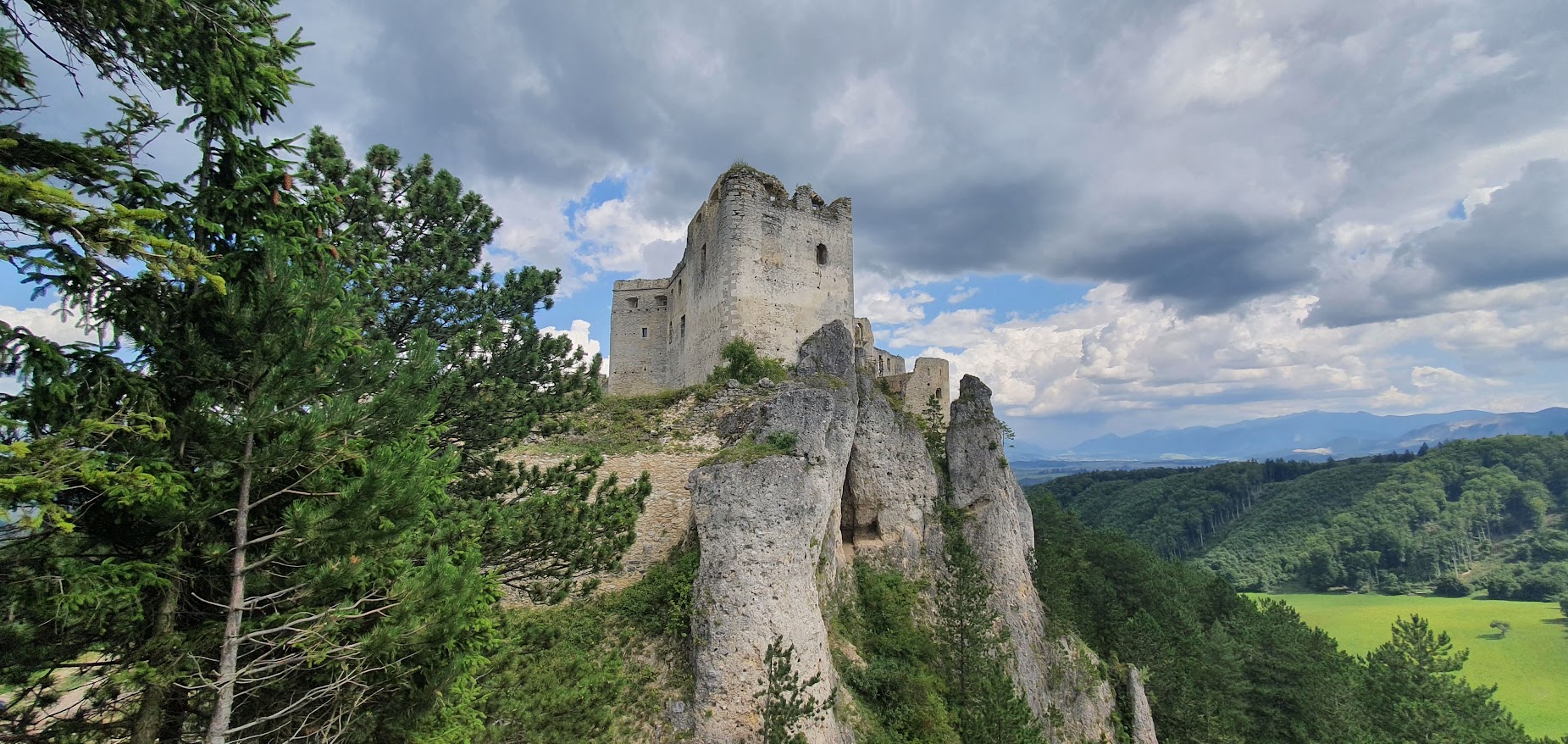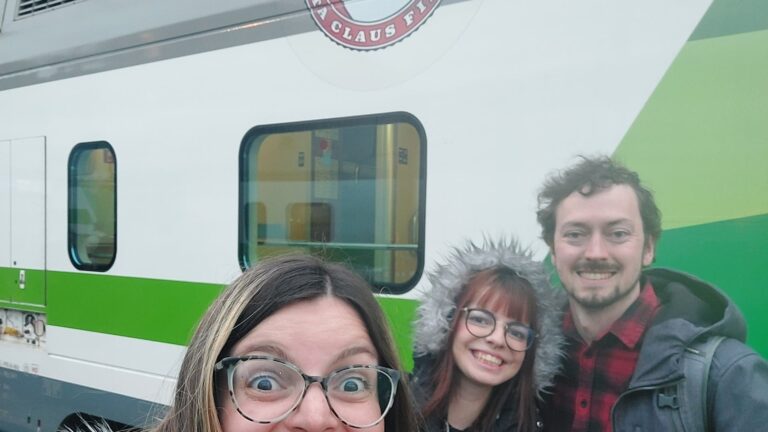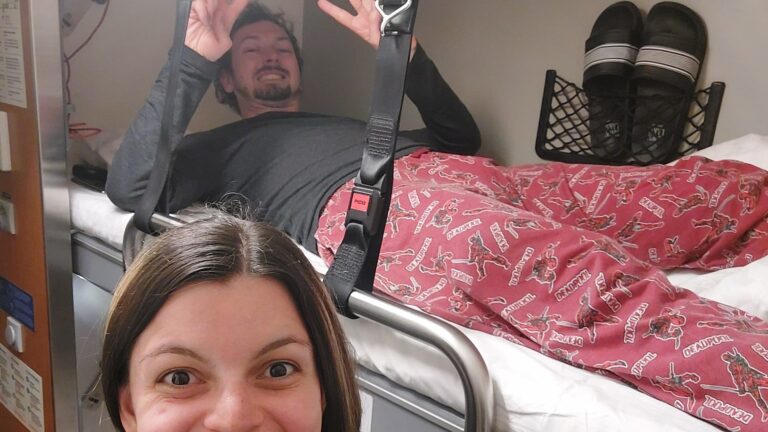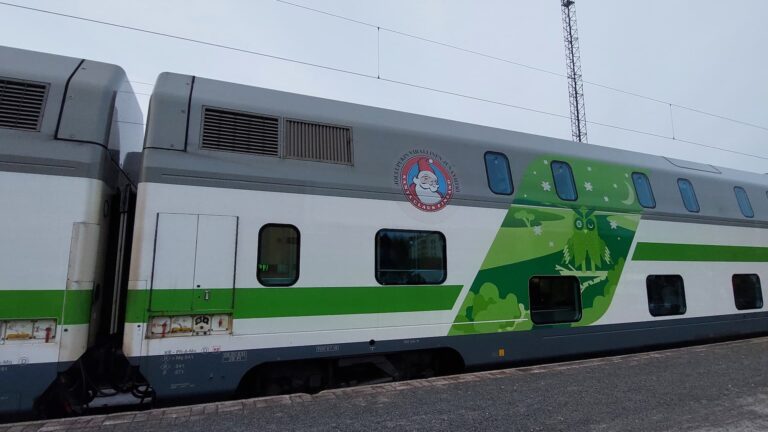Is Slovakia safe to visit?
Or will your mum ground you when you tell her about your adventures there, despite the fact that you are 24 and don’t even live in her house??
In this post, we’ll tell you the truth about safety in Slovakia.
The best part? We are a half-Slovak couple, which means you will get the info straight from a local, rather than a travel guide (or, algorithm-forbid, an Instagram reel 😬).
This post may contain affiliate links. For more information, please read our Disclaimer.
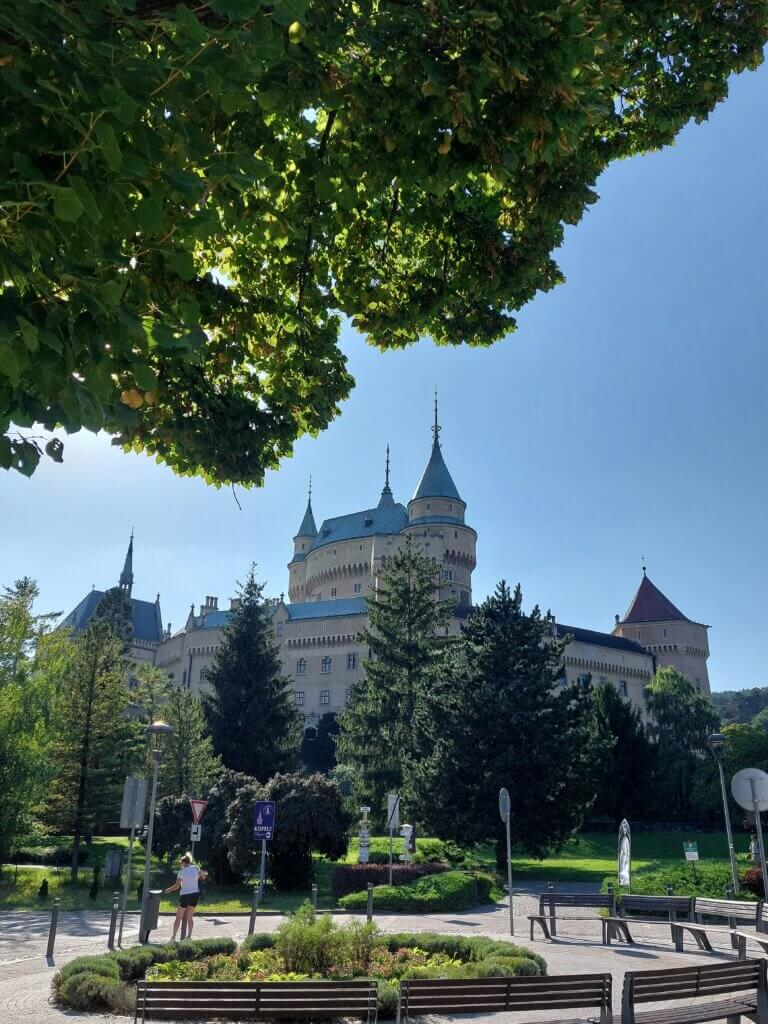
Here’s a little bit about our journey, if you are new here! If you know us, feel free to skip this part.
After leaving our old life in Scotland in March 2022 (it rains too much there), we travelled full-time for almost 2 years. Sounds fancy, doesn’t it? Well, it was. If you think that carrying overpacked backpacks in 45°C heat around streets that aren’t even on Google Maps is fancy. And that’s just 1% of all the fun we had! 😆
During the 2 years we volunteered in Italy and Bulgaria (free travel while learning new skills, anyone?), explored other amazing European countries and backpacked Southeast Asia. Btw, even our secret wedding was more of an expedition than a wedding. 😅
And, of course, we researched and planned everything ourselves, because you gotta keep the budget low, right? If you are like us, you’ve come to the right place, because we want to share all the useful travel tips and info with you!
Excited? Good. Let’s get into it so you can go on your own epic adventures too!
Why should you trust us?
If you skipped the intro of this post and you don’t know us, first of all, hi! 👋
Second, you might think we are travellers who visited Slovakia and now want to share our take on whether the country is safe or not.
Nah!
We wouldn’t say we are Slovakia-experts, but we do know a thing or two about the country.
- Mirka is Slovak – she was born there and lived the first 19 years of her life in the country
- Over the years, we’ve visited the country many times and explored it together
- Recently, we have temporarily set up a homebase in a beautiful small town called Trnava (just 35 mins from Bratislava – it’s so worth visiting)
So if you are wondering: is Slovakia safe? And do you guys have flushing toilets, hoovers* and, most importantly, wifi?? Rest assured we’ve got the answers. And we’ll tell you everything you need to know.
*Legit what people of a certain European nation were worried about before visiting Slovakia in 2006. Which, depending on how old you are, might feel like a centure ago or like the other day. Either way, it’s a ridiculous concern to have and we’ll tell you why.

Must-know about travel safety
There are 2 main things we want to say about travel safety, before we get into discussing safety in Slovakia:
Thought no. 1.
Safety is very relative. Just because something bad happened to you in a country X, it doesn’t mean that it will happen to others too and that the country is unsafe. And vice-versa!
Still, there are a bunch of general safety things you should know before visiting any foreign country. That’s exactly what we’ll talk about in this post – what are the things that make Slovakia potentially not safe to visit?
Thought no. 2.
We believe in building your own travel safety.
What do we mean by that?
It’s pretty simple – you learn about the different travel safety tricks and then apply the ones that you feel will be useful to you. Without overdoing it or losing your mind completely, because then you’d never venture out of your front door!
We talk about travel safety a lot – that’s why we have a whole section on our website focusing just on travel safety tips, so it’s a great place to go if you want to start building your travel safety.
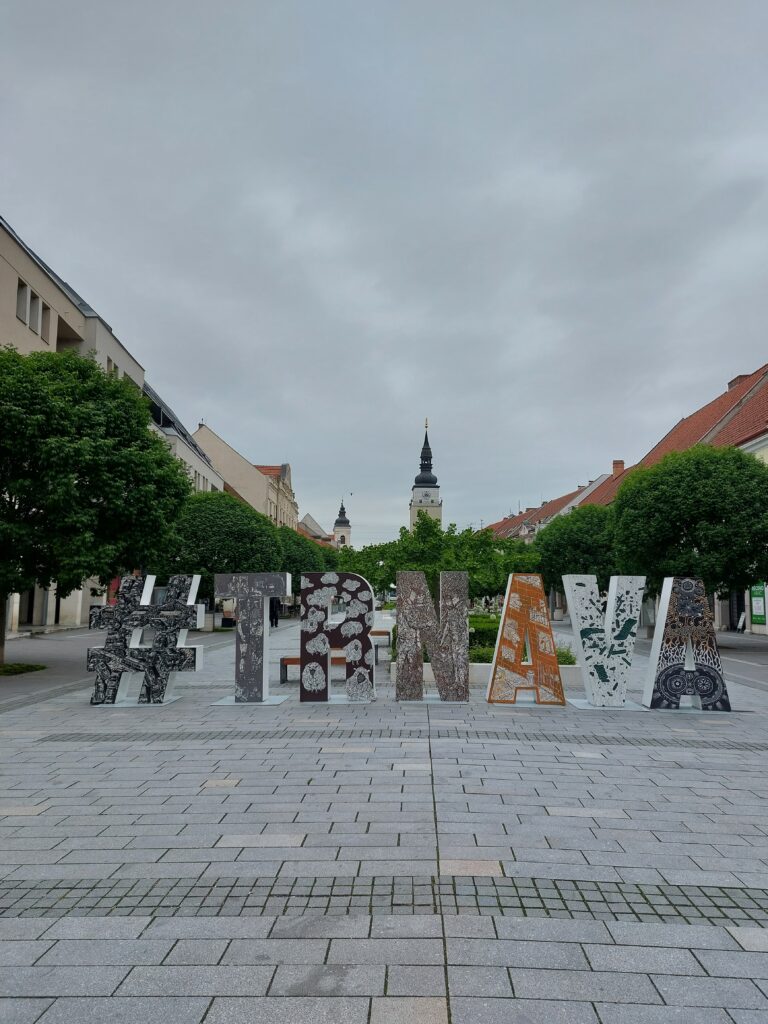
How to increase your travel safety?
The one thing you can do to stay safer no matter where you travel?
Make sure you have travel insurance.
Actually, that’s not true. Having travel insurance is useless, unless it’s GOOD travel insurance.
We’ve heard too many bad-insurance stories to pick a provider without doing a lot of research.
In fact, when we were going full-time travelling, we researched 23 different travel insurance providers. That was fun! (Not.)
This is how we found SafetyWing and True Traveller though, so it was worth it. You might wanna check them out.
Why?
They aren’t your regular insurance providers. They were both created by travellers, so they really understand what people need when they go exploring the world. And they offer a great value for money too, which is exactly what you want.
They do also pass our 11-question test – make sure you check it out before buying travel insurance, especially long-term one.
But now, let’s address the big question: is Slovakia safe to visit?
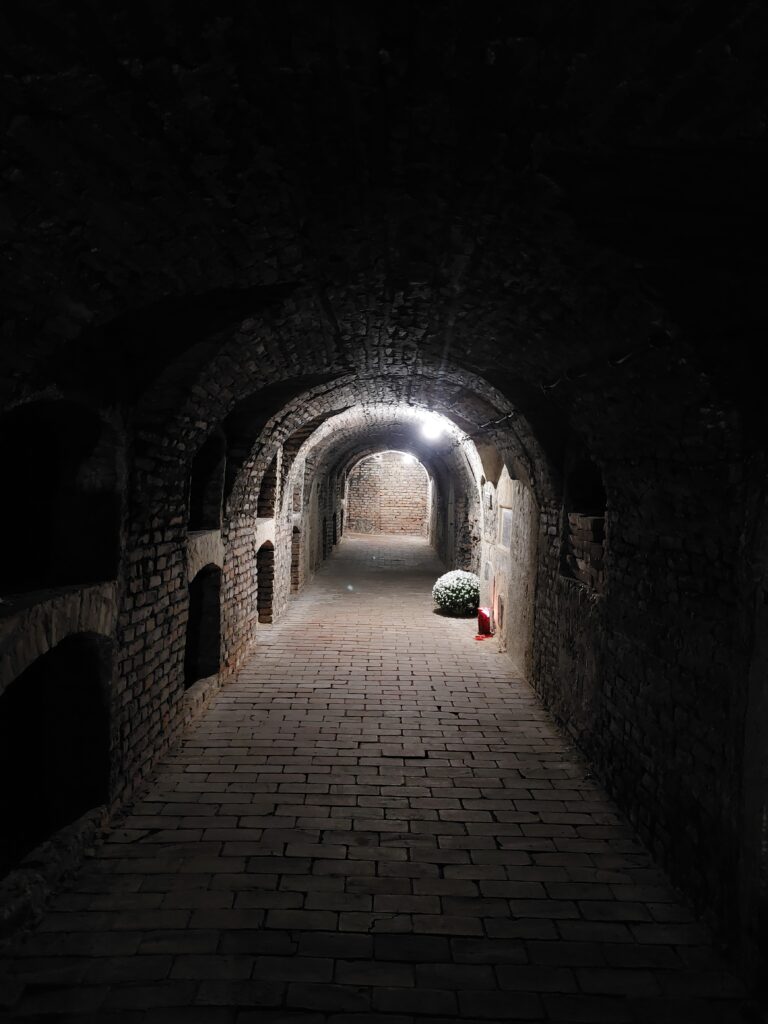
Is Slovakia safe to visit?
Short answer?
Yes.
Slovakia is safe to visit.
Now, that is speaking generally.
There are different rankings of the safest countries in the world, but the one thing you should think about when looking at these is that they can only measure so much.
Each of these rankings was created by people who looked at certain aspects of the country.
Hence, safety is relative.
What we want to do in this post is tell you about the things that:
- We know travellers to Slovakia worry or wonder about
- We think many travellers aren’t aware of, but should know about
Ready? Strap in – it’s going to be a wild ride…
The problem
There is one common culprit that makes many people ask: is Slovakia safe to visit?
The offender?
The 2005 Hostel movie!
From talking to foreigners we’ve gathered that many people’s knowledge of Slovakia is based on this (poorly-rated) movie.
So here are two things that you need to know about this cinematical disaster:
- No, that’s not what Slovakia is like
- The movie wasn’t even filmed in Slovakia. It was actually shot in the Czech Republic. So if anything, you should wonder whether Czechia is safe 😉 (Kidding! It’s also not a fair representation of what that country is like.)
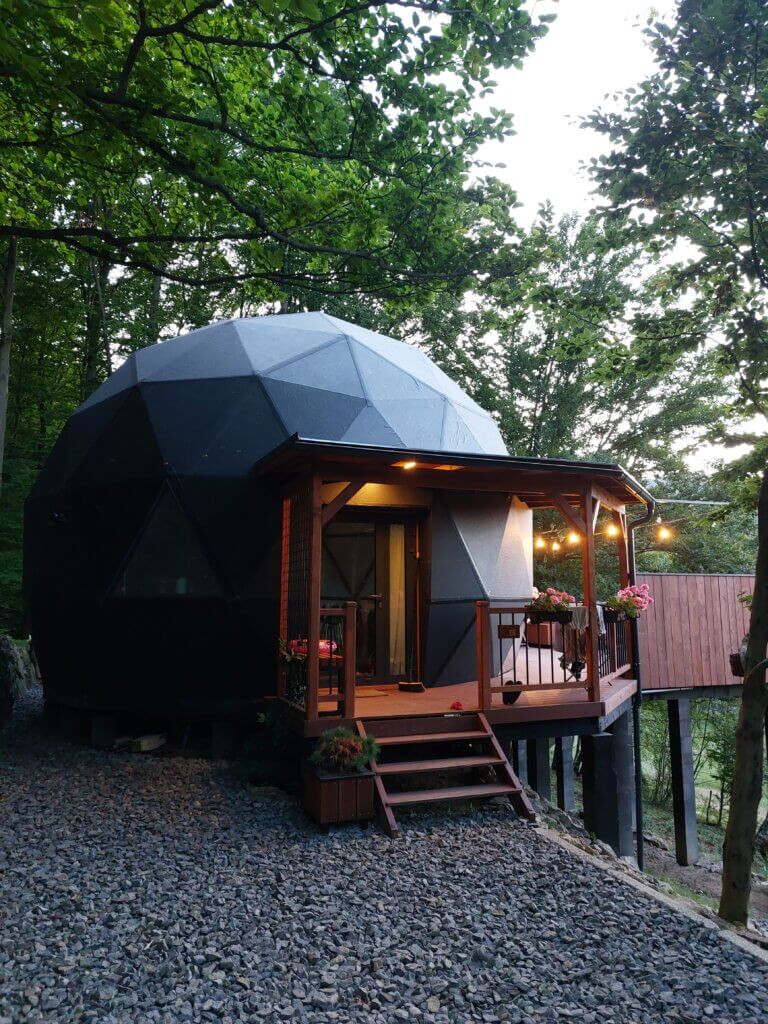
Developed country
The one thing that we still come across is that many people are surprised by how developed the country is.
Not all of it, of course, there are many small villages where life is very much as it used to be years and years ago. Simpler. More basic.
But in cities, you will see all the signs of the modern, Western world, such as:
- Big shopping centres with everything that they include
- Big brands like Tesco, Zara, Primark, IKEA, Lidl, Orange, O2, McDonald’s (as well as all the other usual suspects), even Starbucks
- Decent public transport (although no metro)
- Pretty areas – parks, benches, squares, riversides and more
- Free wifi and sometimes even phone charging zones
- Free water top-up fountains
What does this mean?
It means that you don’t have to worry about having to go to an outside, wooden toilet full of spiders during your visit to Slovakia.
But, at the same time, if that is the experience you want to have, you will be able to find it there.
Speaking of experiences, we wrote a whole post about the 19 weird things you can do in the Slovakia – if you are brave enough. 😉
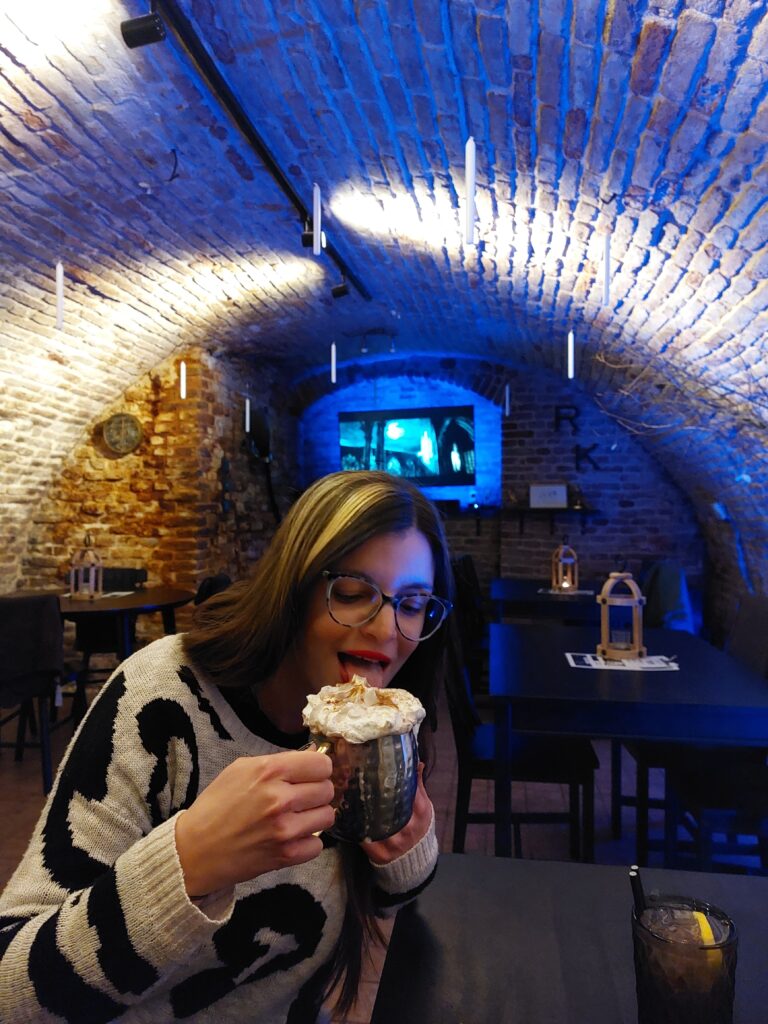
Crime
Okay, crime is a very generic term for all sorts of activities, but there is really just one thing you should be aware of:
Pickpocketing.
Not common, but occasionally does happen.
That means, while you don’t have to worry about bag snatching, like, for instance, in Asia, or phone-snatching, like, for example, in London, you should not make yourself a target unnecessarily.
Follow the usual rules you would anywhere else:
- Keep your belongings safe.
- Take extra care in crowded places – on public transport, at markets, big events etc.
- Avoid dodgy-looking people (there are, surprisingly, quite a few of these, especially in bigger cities).
- Don’t carry valuables with you unnecessarily (e.g. all the money you have brought wiht you on your holiday).
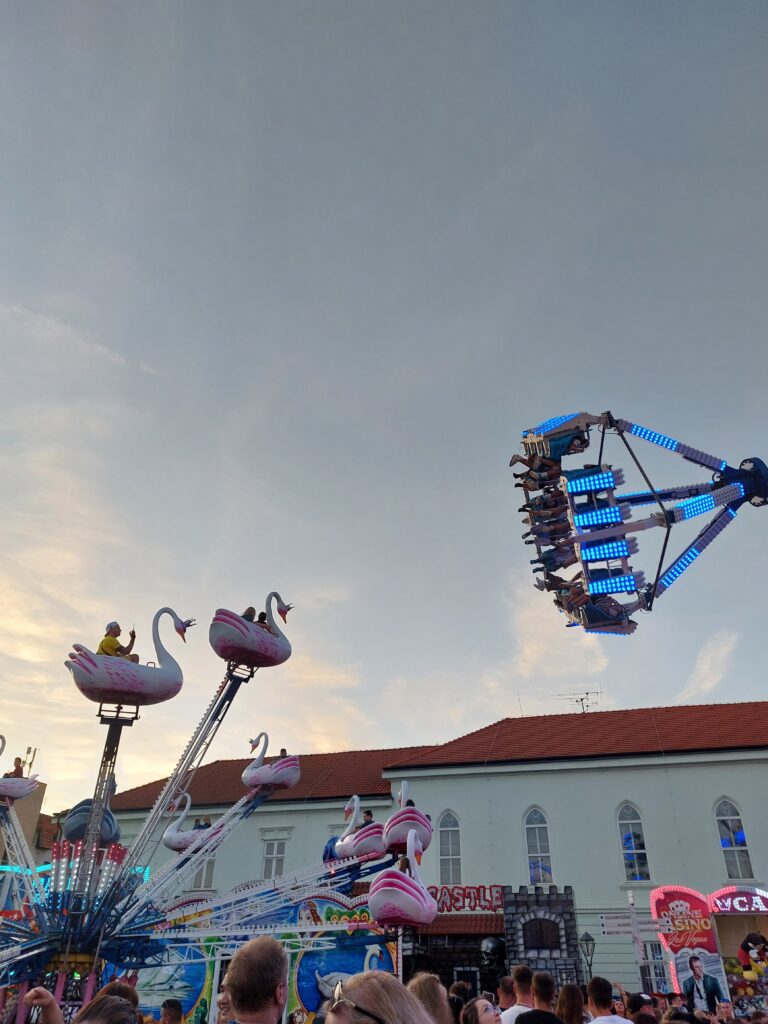
Scams
Travellers to Slovakia don’t have to worry about scams much. Why? The country isn’t enough on the travel radar (yet) for the usual tourist scams to have developed here.
Just follow the usual, common-sense rules:
- Recount money when paying in cash and getting change back (although, Slovakia does use Euro, not some obscure currency that you wouldn’t be familiar with and would need to be counting in hundreds of thousands in to buy a cup of coffee. Although no shade on that, Slovakia did use to have our own currency that involved quite a bit of counting, back in the day!)
- Avoid shady-looking taxi drivers. There are plenty of official taxis as well as Uber and Bolt in bigger cities.
- Avoid currency exchange places. Most of these are legit, not scams, but you will usually get a better deal taking money out of an ATM directly. We use fee-free cards from Starling and Monzo for this when we travel (freebies when you open an account using our link!).
In general, avoid shady-looking people and places and you should be good!
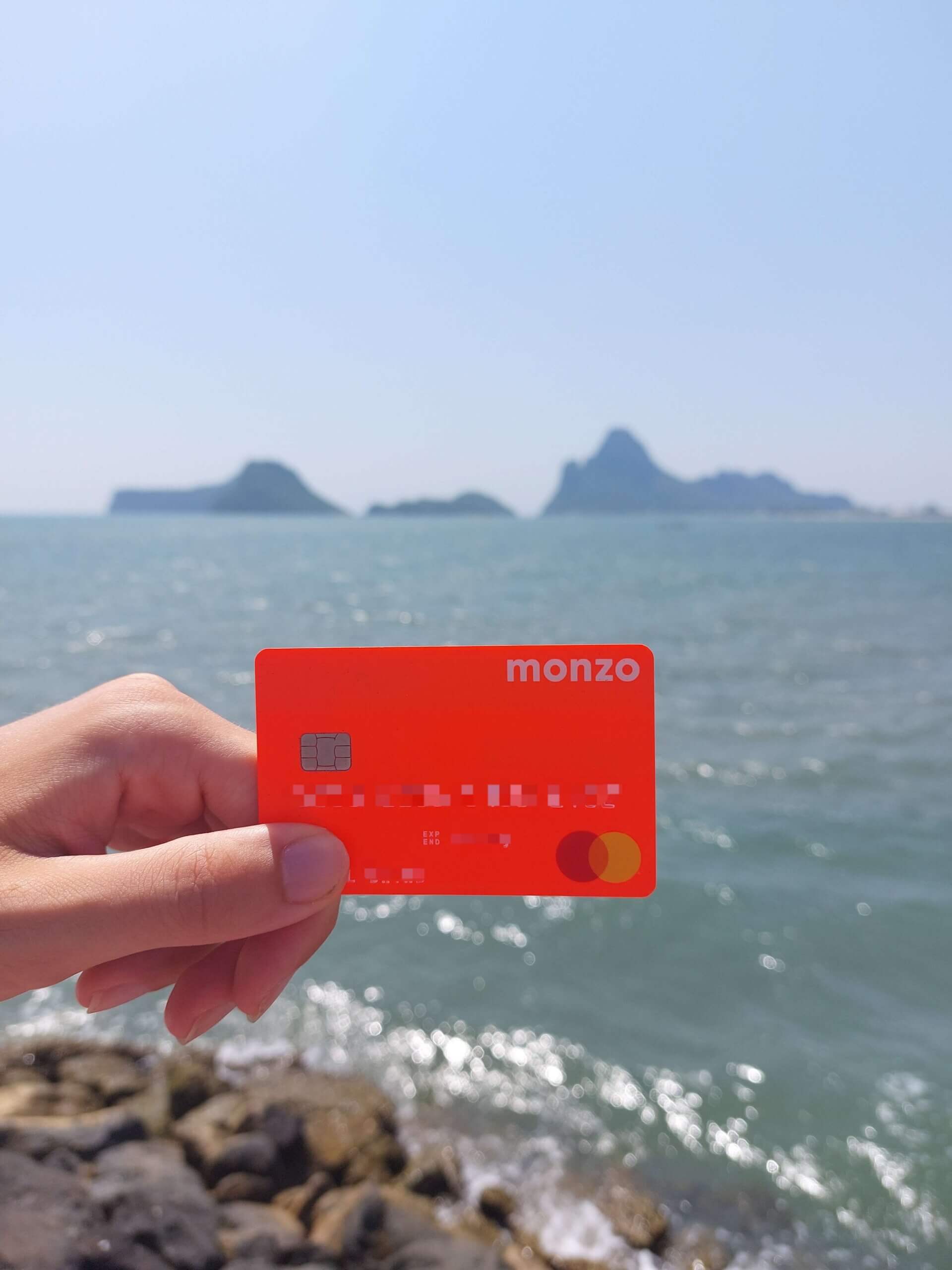
Extremists
The one thing that is a sad feature of Slovakia?
That, possibly, could make someone feel like it’s not a safe country to visit?
There are still many people with homophobic, racist and other close-minded ideas and mindsets. More worryingly? Full-blown right-wing extremism has been a problem for a long time and still persists.
What does this mean for you?
- Attacks are very rare. We have included this section just so that you are aware of it.
- If you are concerned, avoid any rallies and protests you are unfamiliar with (Recently there has been a tremendous increase in protests as a result of the terrible political situation [meaning politicians being total d*cks]. However, these protests have all been official, well-organised and safe).
- If you’re visibly non-white, queer, or otherwise “different,” you might get stared at in villages — but actual aggression is rare.
- On a more positive note, here is some useful info on the LGBTQ+ community including popular hangouts and events.
If talking to a local would make you feel better about safety in Slovakia, remember that you can always book a call with us and we can answer any questions!
War
Often, when people ask: “Is Slovakia safe to visit?” what they actually mean is: “Is Slovakia safe to visit, since it’s right next to Ukraine?”
Yes, one of Slovakia’s neighbours is Ukraine.
And while the country is involved in the ongoing war – whether via politics or by providing refuge to Ukrainian people, you do not have to worry about the armed conflict spilling over the borders into Slovakia.
Why not?
Here are some reasons:
- Slovakia is a member of NATO, which comes with the safety of the alliance
- The country is also part of the EU and the Schengen Zone – again, alliances offering protection
- The border with Ukraine is actually pretty short
You might see Ukrainian flags blowing over cafes, restaurants or other businesses showing solidarity with the country, but you will not see tanks rolling down the streets.
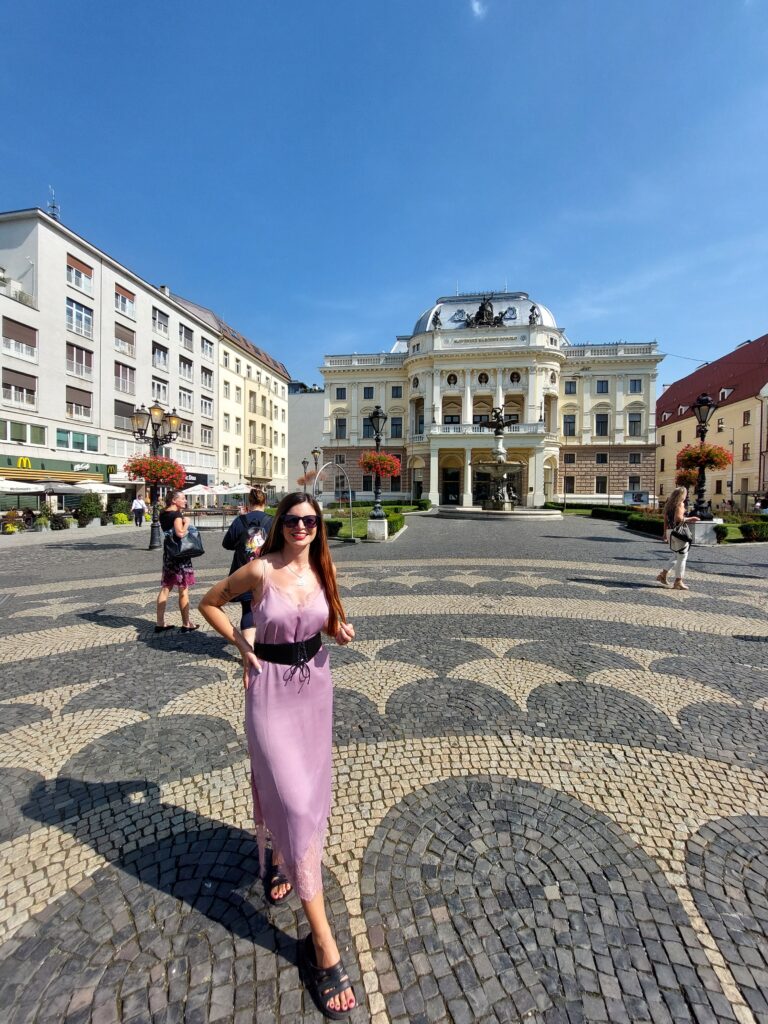
Bears
Bears are something we tell people about even when they are not asking whether Slovakia is safe to visit.
Why?
2 main reasons:
- They are the most dangerous animal living in the country
- Many don’t know Slovakia is home to brown bears
Bears are a constant topic of discussion in the country: are there too many? Are they getting too close to cities and villages? Are we, with our deforestation, the ones to blame? Etc. etc.
What do you need to know?
What you need to know is this:
- Some people have never seen a wild bear in their life (e.g us. But we mostly hang out in the west of the country where there are none). Some people have seen them on multiple occasions (usually people who grew up/live in or near the mountains, go mushroom-picking or hike a lot).
- While attacks are rare, they do happen.
- Spring time is the prime season for bears venturing out, especially with their young. This is when there are most reports of sightings and attacks.
- Make sure you (and everyone else travelling with you) are aware of this information. Not to scare anyone but to be prepared.
- Look up how you should behave in a forest where bears are present (bear sprays are not really a thing in Slovakia, just in case that’s your go-to solution. You can source them, but don’t expect to find them easily in shops).
- Stick to official paths when hiking. Hiking trails are marked and you can usually also find information signs telling you more info.
- Don’t hike alone.
- Ensure you always let someone know about your hiking plans, if venturing into the mountains on your own. Speaking of, this is a great, simple trick that you should use to stay safer as you travel.
What else can you do if you are concerned about bears?
You can check out this interactive map that shows reported bear sightings (black bear symbol) and attacks (red bear symbol). You can click on the bear symbol and then on the text which appears, if you want to read more about the incident.
This way you can stay informed about any bear incidents in the area you are heading to without having to try decipher Slovak news.
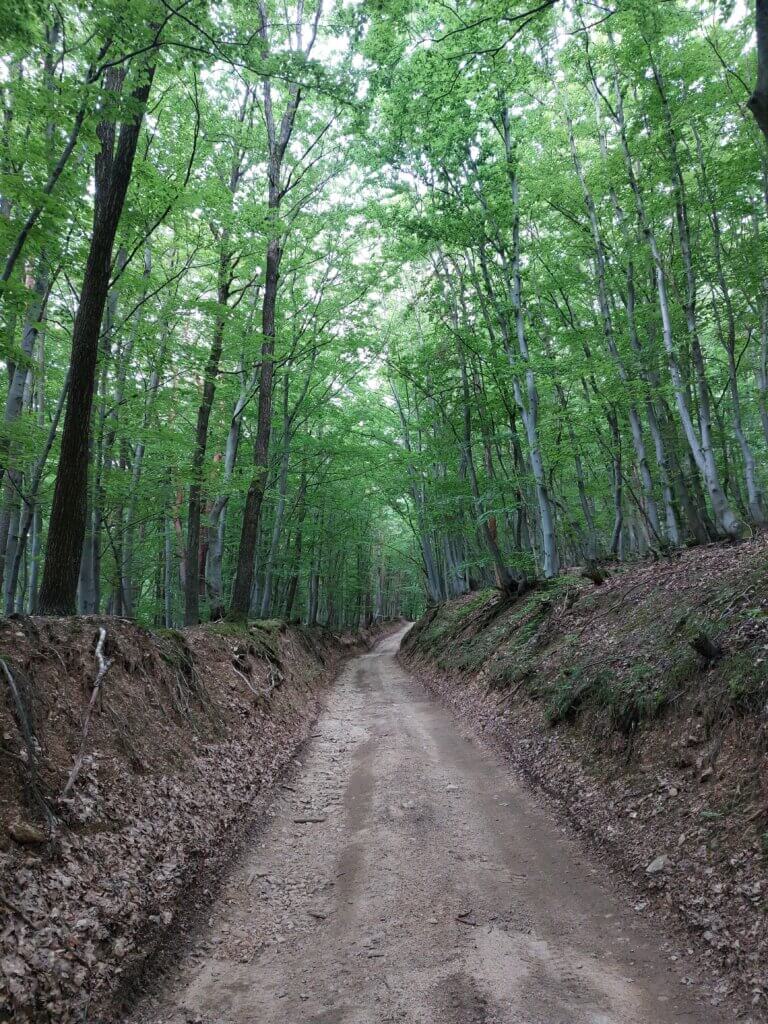
Boars
While we do not have many bears in the west of the country, we grew up knowing you might meet a wild boar in a forest and if you do, it might not end well for you.
As it turns out, this is not 100% correct, as boar attacks on humans are actually rather rare.
So again, this is just something to be aware of and a reminder to always check the signs before entering a forest.
As with bears, familiarise yourself with what to do (and not to do) if you encounter a wild boar. And make sure everyone in your travel party is informed too.
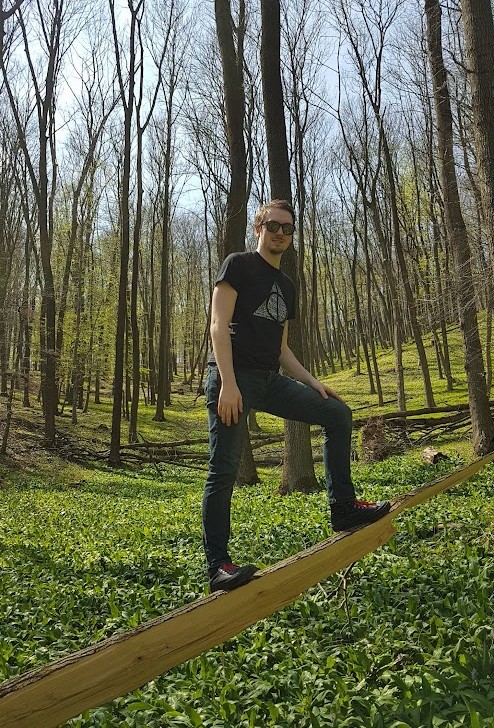
Ticks
We’ve covered bears and boars, now onto the next fun creature which might try and complicate your life as you innocently explore Slovakia! (Isn’t the world a wonderful place? 😆)
Ticks!
Yep, the little black a-holes that can give you Lyme Disease.
They love to hide in tall grass and then – sneak attack! Next thing you know, you have a new bff.
Here is what you should do:
- Don’t walk through uncut, tall grass. Stick to official paths.
- Protect yourself with clothes – long socks, long trousers (unless you are visiting in summer aka hell season). There are even insect-repellent clothes available, did you know that?
- Use repellent. For our full-time travels, we took the Pyramid Trek Sensitive – it’s an amazing DEET-free option you need to check out if you are looking for gentle, but efficient protection. They also have a specific Midge and Tick version, ideal for your travels around Slovakia.
- If concerned, check yourself after each trip to the forest. That’s what we used to do, as kids, living in Slovakia. Every family weekend trip ended with us checking for ticks. Fun, especially when we were tired from the whole day of hiking in the sun.
- If you were lying in the grass (e.g. in a meadow. Twilight vibes anyone??), remember to check your head (scalp) for ticks too. I (Mirka here) have a personal experience of having a stubborn tick attached to my head for DAYS and I would 100% not recommend.
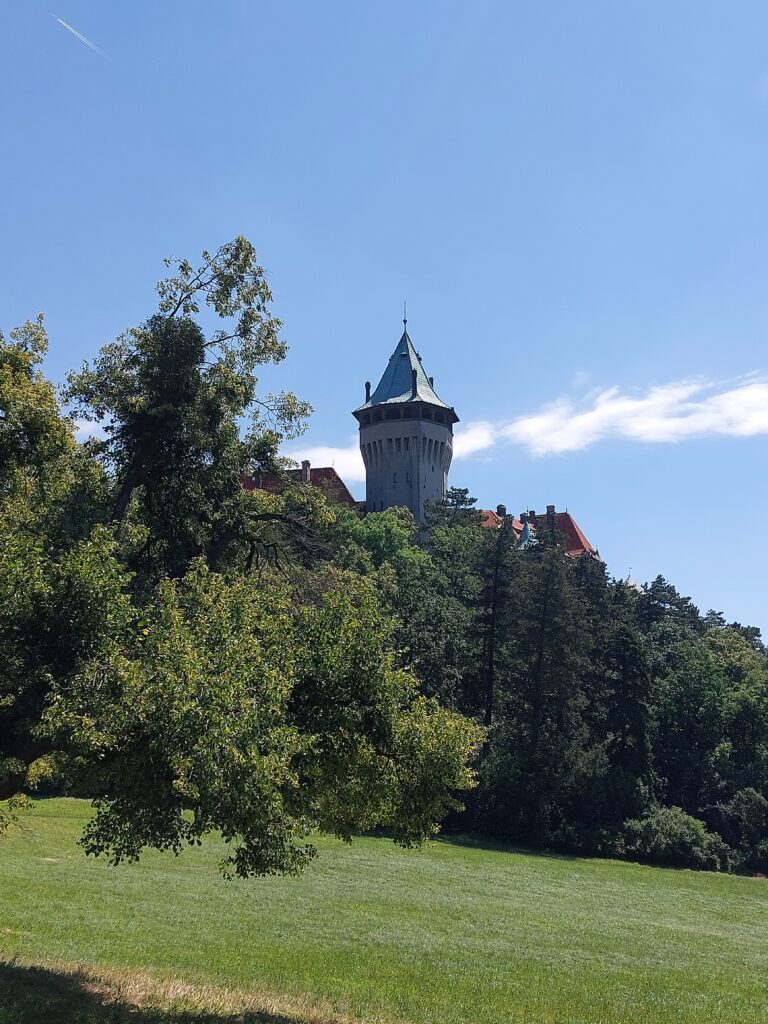
Mosquitos
Last on the list of animals that can f-off when you’re enjoying your holiday: mosquitoes.
These suckers (pun intended) make their appareance every year when Slovakia heats up (May to September) and get on everyone’s nerves.
Here is what you need to know:
- While annoying (and itchy-bite creating), they do not carry dangerous diseases. So you don’t have to worry about malaria, dengue, or Zika.
- Protect yourself, especially in evenings. Wearing long trousers, sleeves – generally cover yourself up.
- You can double-protect yourself with mosquito-repellent clothes. Daniel travels with Craghoppers which are not just insect-repellent, but also lightweight, quick-drying, breathable, durable, moisture-wicking, waterproof and UV-protective. Awesome clothes, anyone?
- Actually, you can triple-protect yourself. Long clothes, ideally insect-repellent ones AND use a repellent too. In the previous section we mentioned that we took the Pyramid Trek Sensitive travelling – it works on mosquitoes and is DEET-free, so you don’t get all the usual nastiness that is a standard with other repellents.
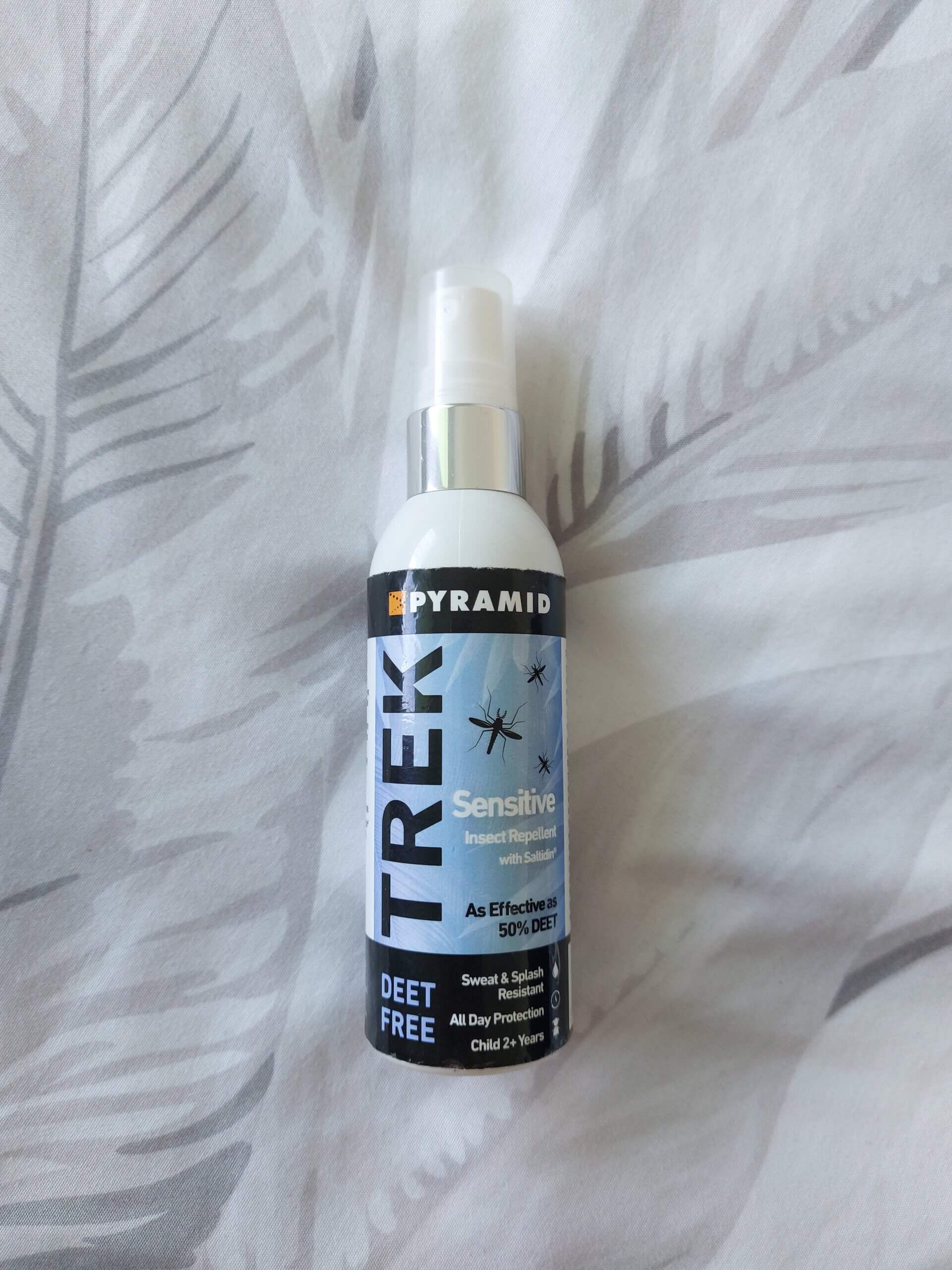
Did you know?
There are also wolves in Slovakia! And, for such a small country, there are actually quite a lot of them.
You don’t have to worry about them though, they do not come near people.
Where you might see them is depicted in many souvenirs and local cartoons, especially the ones featuring a traditional way of living in Slovakia in the mountains – herding sheep, making dairy products, living in a wooden house etc.
Don’t worry about this
The one thing you don’t have to worry about in Slovakia?
Stray dogs.
Dogs in houses tend to bark, because they are often kept as guards of the property, but they usually are (and should be) behind a fence/gate.
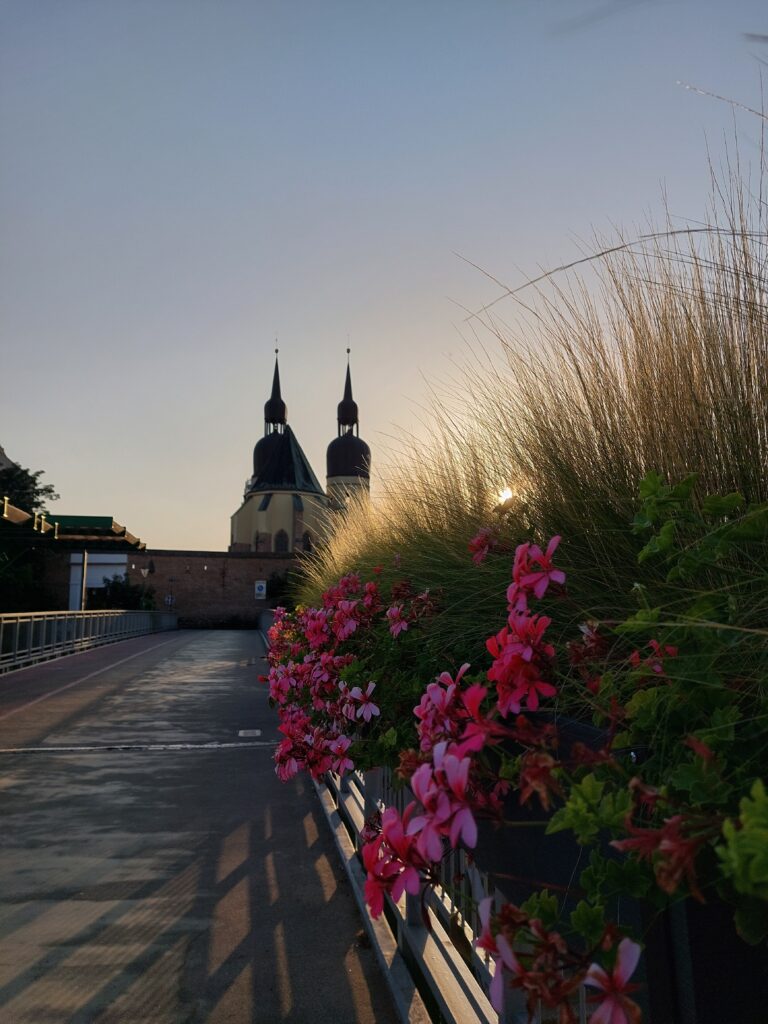
Travelling as a woman
Generally speaking, Slovakia is safe for women. In bigger cities, we would advise avoiding dodgy-looking areas, poorly lit places and parks after dark, to stay on the safe side.
Natural disasters
The one thing people in Slovakia used to say when comparing the country with the more prosperous Western nations?
“We might not have xyz, but at least we don’t have natural disasters.”
You might notice we said: “used to”. Climate change is happening everywhere, including Slovakia, and things are not what they used to be.
For instance, in 2023, the east of the country experienced the strongest earthquake since 1930.
That being said, this is a very rare event. Aside from these flukes, there are no earthquakes, tornadoes, hurricanes, tsunamis or anything else you need to worry about.
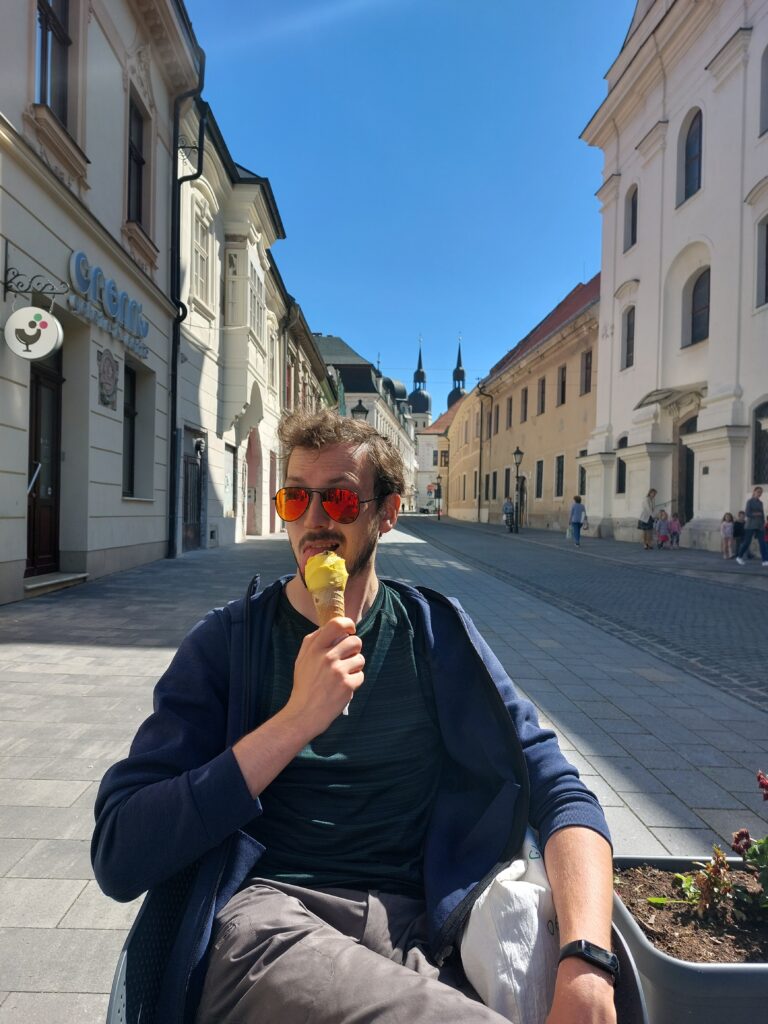
Something to be aware of
The one thing we do have?
Pretty epic thunderstorms.
These happen mainly in summer, and when they hit, you better not be anywhere near trees, so the weather forecast is definitely something to pay attention to, especially if you are heading into the beautiful forests or mountains.
If you want to check the weather forecast for Slovakia, here is a good one that comes with a handy map, hour-by-hour forecast, but also a long-term, 2-week predictions.
When it comes to weather specifically for the Slovak mountains, there are a few websites that you can check out, based on how confident you feel reading different meteograms.
Check out:
Hory.sk, where you can find your location using a map. The site also has a range of webcams from around the mountains where you can check the current situation.
Pocasie Na Horach has a detailed list of locations – navigate to where you are going and you’ll see a pretty simple, basic meteogram telling you everything you need to know.
The Slovak Mountain Rescue Service, obviously, comes with a lot of info, including a weather forecast for the mountains.
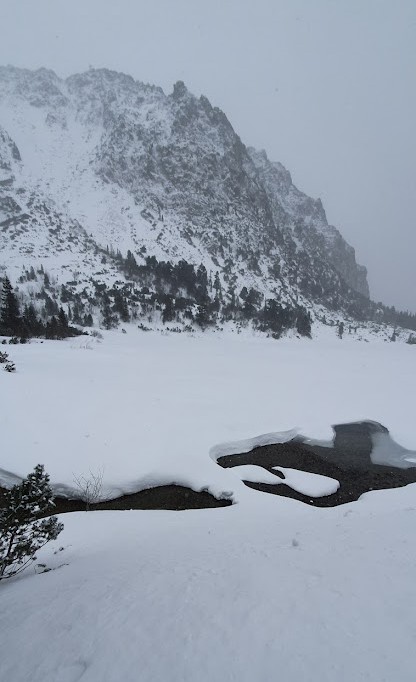
Attraction safety
Is Slovakia safe to visit when it comes to attractions and sights?
Generally speaking, attractions and sights adhere to EU health and safety standards, since the country has been an EU member since 2004. That means it’s required to follow a whole range of regulations covering public safety, accessibility, hygiene, environmental protection, etc.
These standards apply to things like:
- Historical sites and museums
- Outdoor attractions like caves, national parks, and hiking trails
- Adventure activities and tourist infrastructure
So yes, attractions and sights here, generally speaking, are safe, especially if you compare it to many places in, for example Asia or South America, that are known for accidents.
But. There is always a but, especially when it comes to Slovakia.
While on paper, the safety rules are solid, implementation and maintenance can sometimes vary, especially in rural areas or at smaller attractions.
We think this is actually a good thing though, especially if you have common sense. For example, it means that you can visit many castle ruins or caves without a guide.
The one thing to remember is that you are doing this at your own risk, so exercise caution and, well, don’t do dumb 💩.
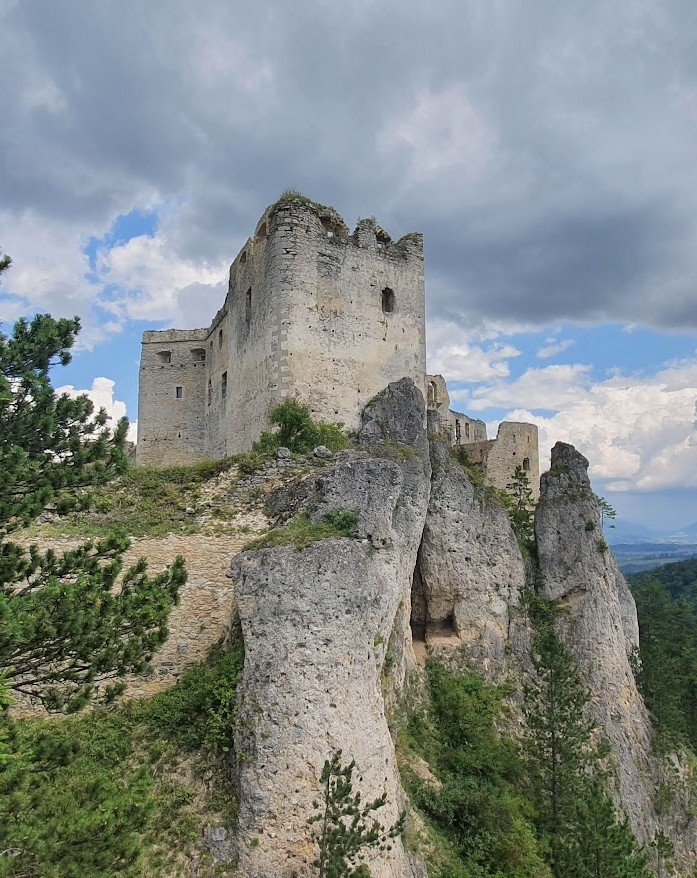
(Pictured: Lietava Castle)
Don’t forget this
We’ve already talked about it at the start, but make sure you have good travel insurance, even when visiting a safe country like Slovakia.
If you are feeling overwhelmed by the options, we’ve got you. We can recommend 2 travel insurance providers who we know are great:
SafetyWing and True Traveller.
What makes them different from the rest? Well, both of these were created by travellers, so they are perfect for, you guessed it, TRAVELLERS! Both also offer amazing value for money and we are all about saving money and spending it on adventures.
Do check them out if you don’t feel like screaming at your laptop while scrolling through all the different travel insurance providers out there.
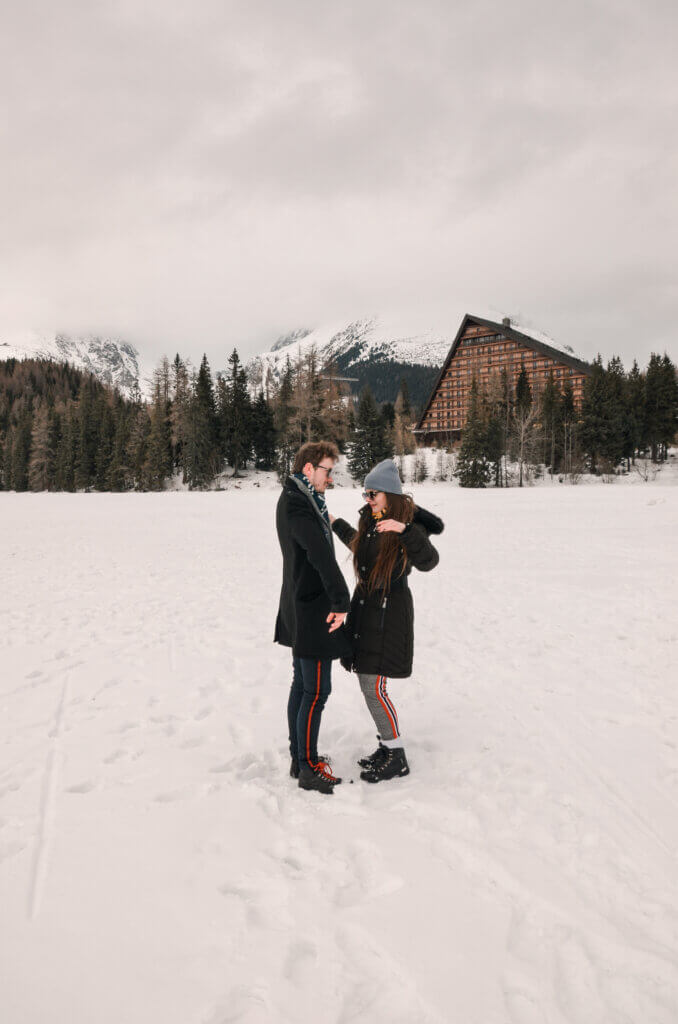
Hopefully this post reassured you (and your mum) that Slovakia is safe to visit. If you still have some concerns (or your mum does!), you can reach out to us in the comments below or directly on our Instagram.
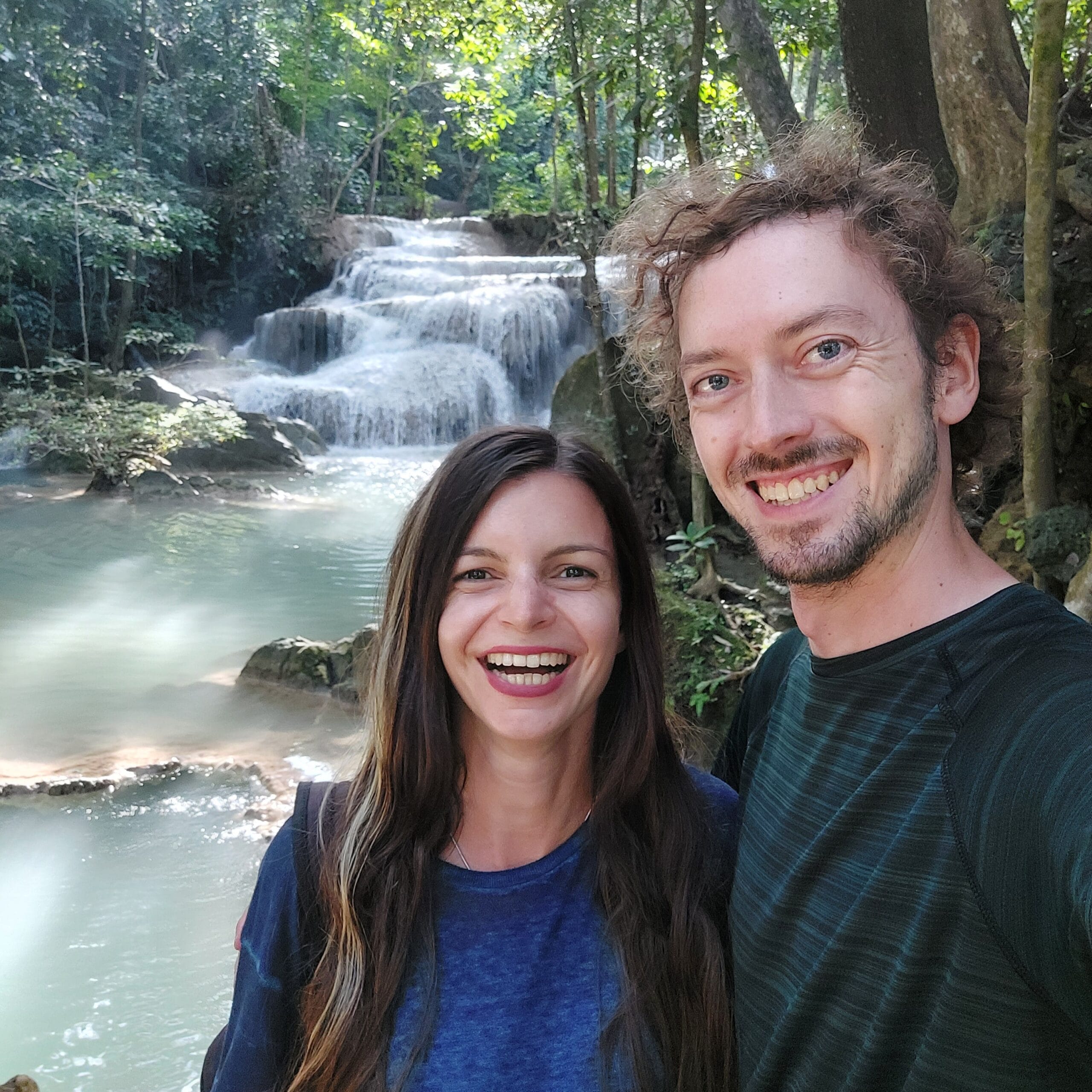
Hi!
We’re Mirka & Daniel — full-time travellers, professional overthinkers & bad luck magnets. We research EVERYTHING and then share all the weird travel tips with you here. Follow along to make your adventures easier! 🌴

